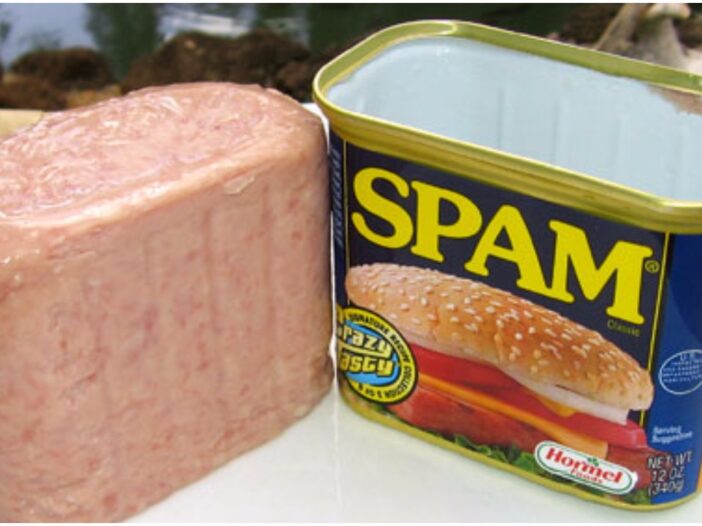
When the information age needed a disparaging word to describe their annoyance with unsolicited email, they turned to a much-maligned meat product called SPAM. It isn’t hard to understand why, since pop culture has long poked fun at the iconic cans of processed pork. But, whether or not that reputation is deserved, one thing is clear – millions of people, whether they readily admit it or not, still purchase SPAM in considerable quantities, just as they have for over seven decades.
SPAM was created by Hormel foods and introduced way back in 1937, with its name either derived from its two main ingredients, shoulder pork and and ham, or as a reference to “Spiced Ham” – depending on which source you believe. Packed in an oval-shaped can, it required no refrigeration and had a respectable shelf-life, making it a popular addition to any home pantry.

It sold reasonable well in those early years, but really hit its stride during the rationing efforts of WWII, offering families a tasty alternative to beef, both at home in America and in Great Britain where it wasn’t included on the ration list.
Of course, there can always be too much of a good thing and eventually, people on both sides of the pond experienced more than their fair share of SPAM. It wasn’t long before the canned meat became the brunt of many a joke. Perhaps most famously, the comedy troupe Monty Python took it upon themselves to mercilessly ridicule the oversaturation of the product.
While America and Great Britain were poking fun at the canned pork product, other cultures embraced it. In Hawaii and other Pacific islands, for example, where large surpluses were on hand after the war ended, SPAM worked its way into the local cuisine and remains popular to this day, with the typical person in these locales consuming an average of sixteen cans of SPAM a year. In fact, Hawaiians took such a liking to SPAM that McDonalds and Burger King restaurants both found success by including it as part of their fast food menus. It is lovingly referred to as “Hawaiian steak” on the islands.
